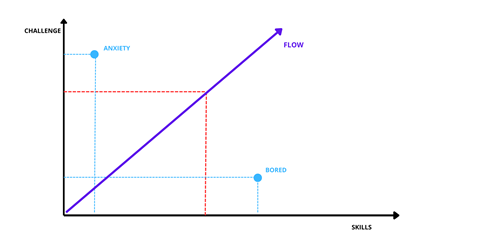Cellist and researcher Joanna Latała encourages positively reframing the feeling of stress, and offers strategies on how to transform it into a force for growth and success

Read more Featured Stories like this in The Strad Playing Hub
Stress is often seen as a villain in our lives, especially for those navigating high-stake careers like professional musicianship. The demands of performances, auditions, and recording sessions create an environment ripe for anxiety. However, contrary to popular belief, stress can be a powerful ally rather than an adversary. By understanding and harnessing the positive aspects of stress, we can unlock greater potential and achieve peak performance.
This article delves deep into the nature of stress, its role in our lives, and actionable strategies to transform it into a force for growth and success.
Stress - A Natural Part of Life
Stress is not a flaw or a sign of inadequacy; it’s an intrinsic part of the human experience. As Kelly McGonigal, author of The Upside of Stress, puts it: ’Stress is not a sign that you are weak or inadequate, but rather that you are human.’ Stress signals that we are engaged, challenged, and invested in our pursuits.
When we face challenges, our bodies release hormones like adrenaline and cortisol. These hormones heighten our awareness, sharpen focus, and energise us for action. While chronic stress can lead to burnout, acute stress often serves as a performance enhancer—a companion to greatness rather than its enemy.
For professional musicians, stress arises in moments of high stakes: a live performance, a critical audition, or a studio recording. Understanding this stress as a natural and even beneficial reaction can reduce its negative impact and open pathways to improved performance.
’Stress is not a sign that you are weak or inadequate, but rather that you are human.’ - The Upside of Stress by Kelly McGonigal
How to Reframe Stress
Reframing how we perceive stress is a cornerstone of managing it effectively. Instead of seeing stress as a threat, we can interpret it as a sign that we deeply care about our work and goals. Performance coach Don Greene captures this perfectly: ’Stress is a signal that you’re alive and that you care. The absence of stress is the absence of caring.’
Benefits of Reframing Stress
-
Enhances Focus: When reframed positively, stress can sharpen our focus and drive.
-
Builds Resilience: Viewing stress as an opportunity helps develop emotional and mental resilience.
-
Promotes Growth: Stress challenges us to expand our skills and adapt, fostering personal and professional growth.
The Science Behind Stress and Performance
The Yerkes-Dodson Law illustrates the relationship between stress and performance. Moderate levels of stress improve focus and productivity, pushing us into a state of ‘flow.’ However, excessive stress can lead to anxiety and hinder performance.

This relationship can be visualised using a graph that compares challenge and skill levels. As shown in the graphic, when challenges exceed our skills, we experience anxiety. Conversely, when skills far surpass the challenge, we experience boredom. The sweet spot where challenge and skill align is the ‘flow’ state—an optimal zone where performance feels natural, focused, and rewarding.
Practical Strategies for Managing Stress
1. Acceptance
Understanding that stress is a natural response is the first step to managing it. Recognising its inevitability allows us to focus on how to respond rather than resist.
2. Practising Performance
One reason musicians feel heightened stress on stage is the lack of practice performing under similar conditions. Regularly simulating performance scenarios in rehearsals can desensitise the body to stage fright and reduce anxiety.
3. Physical Activity and Self-Care
Exercise, meditation, and proper self-care are proven stress-reduction techniques. Physical activity releases endorphins, while mindfulness practices calm the nervous system and enhance focus.
4. Positive Visualisation
Envisioning a successful performance can prepare the mind for success and reduce anxiety. This mental rehearsal primes the brain for confidence and focus.
’Stress is always going to be there, but it’s how you deal with it that’s important’ - Lang Lang
Lessons from Renowned Musicians
Jazz pianist Herbie Hancock once said, ’Stress can be a good thing if you channel it properly. It can keep you on your toes and make you feel alive.’ Hancock’s perspective highlights the motivating force of stress.
Classical pianist Lang Lang adds, ’Stress is always going to be there, but it’s how you deal with it that’s important.’ For Lang Lang, embracing stress as part of the process is key to thriving under pressure.
Stress in Action - Overcoming Anxiety Through Practice
Stage fright often occurs because musicians lack experience performing under high-pressure conditions. The mismatch between skills and challenges triggers a protective response, heightening anxiety.
As shown in the graphic, repeated exposure to manageable challenges allows musicians to gradually shift from anxiety to the flow state. By regularly practising in performance-like conditions, musicians can build the confidence and skills necessary to handle high-stakes situations. The transition from rehearsal to stage becomes seamless, and stress transforms into a powerful ally.
The Role of Reflection and Growth
Every stressful experience is an opportunity for growth. Reflecting on what triggered the stress and how it was managed provides valuable insights for future situations.
Over time, consistent exposure to manageable stress strengthens resilience. Musicians who embrace stress as part of their journey develop the mental toughness needed to thrive in demanding careers.
Conclusion
Stress is not our enemy. For professional musicians and anyone pursuing excellence, it’s a vital part of reaching peak performance. By reframing our mindset, recognising stress as a natural response, and adopting healthy management strategies, we can harness its power to fuel our growth and success.
Remember, stress is a sign of caring deeply about our work and striving for greatness. With the right approach, it’s not a foe to fear but a friend to embrace.
Joanna Latała is a Polish-born cellist and researcher specialising in mental training for musicians. Based in Scandinavia, she has performed at venues such as Carnegie Hall and Berliner Philharmonie. In 2023, she founded the platform Achieve Performance Mindset, where she shares insights on performance psychology to help musicians build mental resilience.
Read: Positive self-talk: a key to boosting musicians’ confidence
Read: How taking a break can make you a better musician
Read more Featured Stories like this in The Strad Playing Hub
The number one source for playing and teaching books, guides, CDs, calendars and back issues of the magazine.
In The Best of Technique you’ll discover the top playing tips of the world’s leading string players and teachers. It’s packed full of exercises for students, plus examples from the standard repertoire to show you how to integrate the technique into your playing.
The Strad’s Masterclass series brings together the finest string players with some of the greatest string works ever written. Always one of our most popular sections, Masterclass has been an invaluable aid to aspiring soloists, chamber musicians and string teachers since the 1990s.
The Canada Council of the Arts’ Musical Instrument Bank is 40 years old in 2025. This year’s calendar celebrates some its treasures, including four instruments by Antonio Stradivari and priceless works by Montagnana, Gagliano, Pressenda and David Tecchler.














































No comments yet